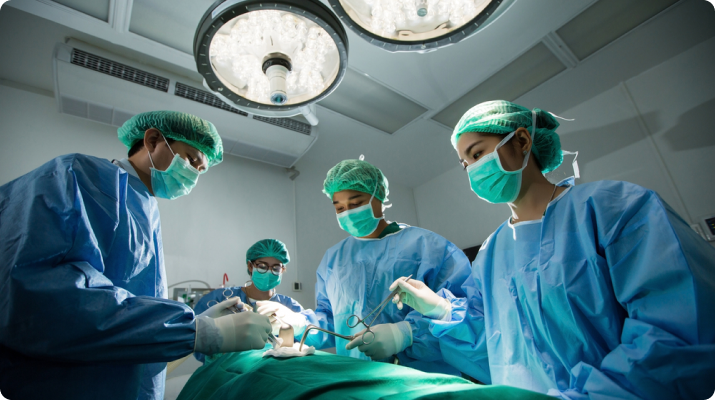- PERTH SURGICAL & BARIATRICS
-
08 65581901
Abdominal wall hernia is the protrusion of a part of tissue or an organ through a congenital or acquired area of weakness in the wall. A hernial content may be omentum or bowel protruding through a weak area in the abdominal wall. Most cases of abdominal wall hernia are asymptomatic, but strangulated ones may prove to be fatal, and therefore, call for immediate surgery. Severe pain, along with vomiting, constipation, blood in stools are some of the signs that points towards the need of a surgery.

A hernia may develop over time, or can be present at the birth. In addition, an increased pressure on the abdominal muscles due to chronic cough, tumors, peritoneal dialysis, lifting heavy weight, trauma to the abdomen, or pregnancy may also lead to abdominal wall hernia. Weak spots that develop in the tissues and muscles of the abdominal wall cause the problem.
There are five common types of hernia, named according to the position of fault in abdominal wall. These include:
Patients with inguinal hernia have a feeling of fullness or lump in the groin area that may cause pain and burning sensation. The doctor conducts a physical examination to confirm the diagnosis. Obturator or femoral hernia is more difficult to identify and symptoms might include pelvic pain. A CT scan might be required to diagnose femoral or obturator hernia. The clinical diagnosis of abdominal wall hernia is difficult, especially in patients with abdominal wall scarring or obesity issues. In most cases, we recommend abdominal imaging for an accurate diagnosis. CT scan is a preferred method for an accurate diagnosis of hernia, its differentiation from other abdominal masses, and detection of complications, if any.
If the hernia is incarcerated or has no signs of strangulation, the primary line of defense includes mild sedation and pain medication. If the hernia reduces spontaneously then an elective surgery is organised, if not the hernia needs to be operated as soon as possible. Strangulated abdominal wall hernias, however, do not reduce in size. The signs of strangulation include fever, tenderness, elevated lactate, red skin, and leukocytosis. These cases need an emergency operation to save life.
At Perth Surgical and Bariatrics, we perform the minimally invasive procedure to treat abdominal wall hernias. Dr. Ravi Rao, our key consultant, works closely with patients to prepare holistic treatment plans, ensuring the best possible results and minimizing the probability of complications.
Reach out to us to book a consultation with Dr. Ravi Rao and learn about your various options for bariatric surgery.